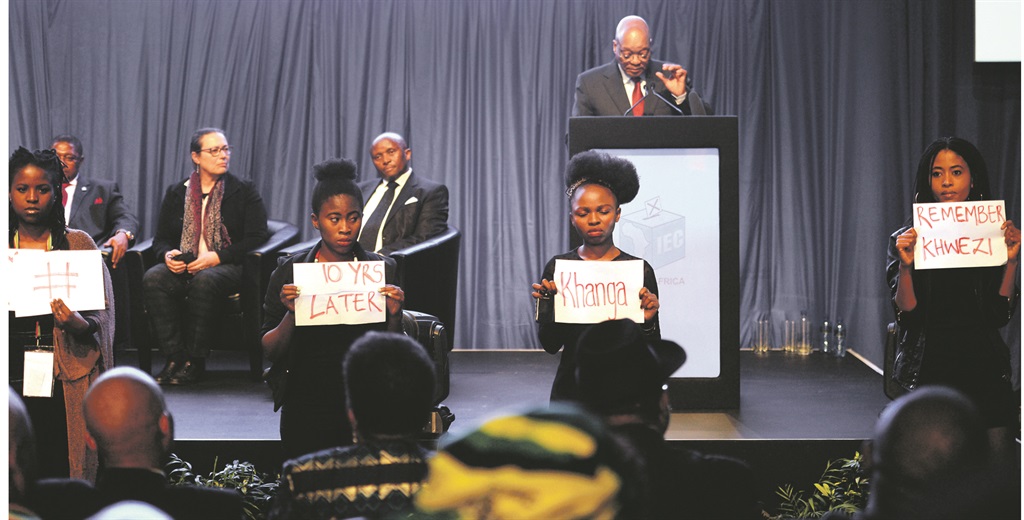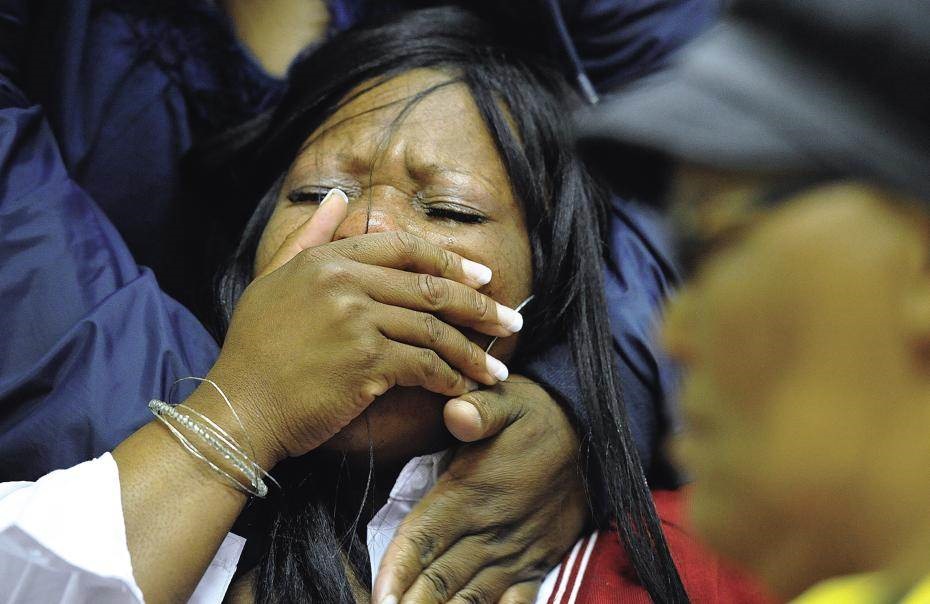
Protest has always been an important driver of social change in South Africa, before and since democracy. Perceptions about protest and its role in effecting change are influenced by different factors, including popular media coverage. Protest is seen variously as inconvenient, destructive and a vital form of expression and democratic citizenry, however, it is a legitimate and credible form of public participation and expression.
Aimed at holding government to account, protest takes different forms, including vigils, pickets, mass demonstrations and marches. Many protests have been linked to growing dissatisfaction and frustration experienced by communities, low-income earners and students as they struggle to engage with an increasingly unresponsive and remote state.
There have also been powerful symbolic protests which seek to challenge the status quo; existing notions of gender, race, inclusion and the body. While they are usually smaller in scale, they have had a significant impact. Examples include the #Khwezi protest where four women silently protested against former president Jacob Zuma by holding up placards reading “Khwezi” in support of his rape accuser; and the One in Nine Campaign’s protest where a number of black, lesbian women disrupted a Johannesburg Gay Pride march by lying in the road to protest the march’s lack of inclusiveness.
Read: Khwezi protest: We came as 4, but stood as 10 000
Research by the Centre for Social Change indicates a trend towards increasing numbers of labour and community protests and a greater number of them being disorderly – either disruptive or violent.
Of the protests recorded by the police between 1997 and 2013, the incidence started increasing in 2004 and peaked in 2012, after which they remained relatively constant. The highest motivations behind protests have been labour (46%) and community (22%). Over the 16 years, Gauteng had the largest number of protests with 14 229, followed by the Eastern Cape with 10 251; the North West 8 881; the Western Cape 8 796 and KwaZulu-Natal with 7 276.
To effectively draw attention to an issue, protests often need to be disruptive and cause inconvenience. Legally, violent protest is that which causes damage to property or physical harm to a person, and is known as civil disobedience. Examples include blocking roads, burning tyres and throwing faeces. While these acts are disruptive and may cause an inconvenience, they are not necessarily violent. Of police-recorded protests between 1997 and 2013, only 10% were recorded as violent and 10% as disruptive, while 80% were orderly.
The state, the police and private institutions have often responded to protests with violence and intimidation. In poor urban communities, the police frequently use tear gas, water cannons and rubber bullets against protestors. The death of community leader Andries Tatane in April 2011, during a protest about inadequate water services in Meqheleng township, is emblematic of this type of abuse.
Read: Someone said: Shoot him!
Equally horrific abuses occur when live ammunition is used. In August 2012, 37 striking mine workers were killed when the police opened fire on them at Lonmin mine in Marikana in North West.
Other subtle forms of repression have also been used. During 2015 and 2016, police and private security responded to student protests across the country with force, assaulting, arresting and unlawfully detaining many protestors. Universities approached the courts to obtain interdicts preventing students from protesting on campuses. At Rhodes, two female students who protested against rape culture at the university were punished for their participation in these protests by being expelled.
Read: Rhodes rape list: Mob justice is not the answer
Research and experience have shown that the police often contribute, in various ways, to the escalating tension and eruptions of violence in protests. According to both local and international public order policing regulations, police should de-escalate and minimise violence by adopting a facilitative role and safeguarding the right to protest. We need to shift our perceptions of protest and understand it in the context of extreme inequality and poverty. Without this, we risk dismissing how government is failing the poor and marginalised.
Insurgent Citizens: Reflections on Protest in Democratic South Africa, currently on display at the Nelson Mandela Foundation in Johannesburg, seeks to challenge and dispel some of the assumptions and longstanding myths about protests in South Africa.
Through a collection of images and quotes taken from some of the most memorable protests, spanning the 25 years of our democracy, the exhibition offers the public an opportunity to reflect on protests and the state’s response to them. It was designed to stimulate discussion around the right to protest and what it means in South Africa today. It profiles the individuals and communities who struggled and continue to struggle for a more just society.
- Masiangoako is a researcher at the Socio-Economic Rights Institute of South Africa. The exhibition is open for public viewing at the Nelson Mandela Foundation Centre of Memory on weekdays between 8.30am and 4.30pm
Have you participated in or been affected by a protest, and how did it play out?
SMS us on 35697 using the keyword PROTEST and tell us what you think. Please include your name and province. SMSes cost R1.50. By participating, you agree to receive occasional marketing material




 Publications
Publications
 Partners
Partners










